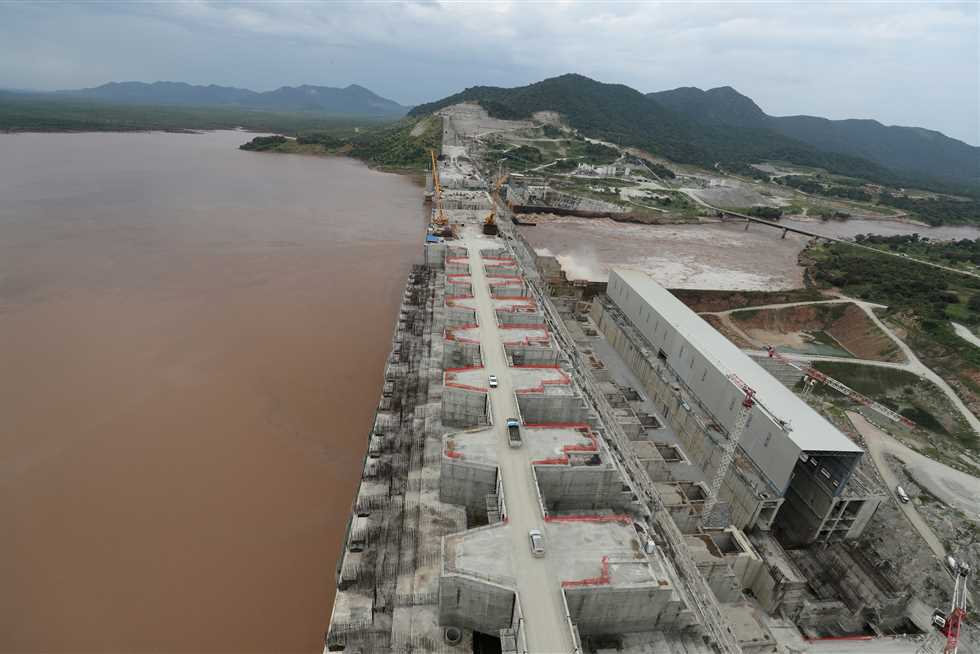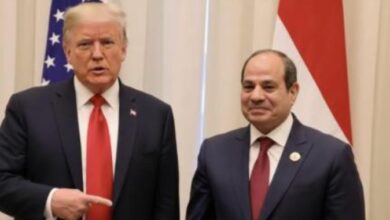
Egypt and Sudan on Tuesday demanded that meetings of the second round of negotiations over the Grand Ethiopian Renaissance Dam (GERD) be suspended due to Ethiopia’s unwillingness to discuss operating rules and a legal mechanism for resolving dam-related disputes.
A statement by the Egyptian Ministry of Water Resources and Irrigation said that the Ethiopian Water Minister preempted Tuesday’s meeting by sending a letter to his counterparts in Egypt and Sudan that contained draft guidelines and rules for filling the dam, but that did not include any operating rules or any elements that reflect the legal obligation of the agreement.
The statement said that Egypt and Sudan requested the meetings be suspended so that they can conduct internal consultations on the Ethiopian proposal, which contradicts what was agreed upon during the African Union Bureau Summit on July 21, as well as the results of the water ministers’ meeting on August 3.
Egypt stressed that the Ethiopian letter is contrary to what was agreed upon in the Aug 3 meeting, during which it was agreed that it is necessary to focus on resolving contentious points that will be presented at another meeting of the water ministers on Thursday.
The statement said that the goal of Tuesday’s meeting was to allow technical and legal committees to discuss the contentious points of the agreement on filling and operating the dam.
The meetings of the second round of GERD negotiations began on July 27 under the auspices of the AU and in the presence of observers from the United States and the European Union, and experts of the African Union Commission. Its aim is to reach a binding agreement regarding the filling and operation of the dam. The meetings are based on the outcomes of an African Union presidential summit held on 21 July.
Egypt and Ethiopia have been in multiple rounds of negotiations over the dam during the past nine years, all of which have failed to reach a final agreement. Egypt blames Ethiopia for the failure of negotiations.
Ethiopia’s Foreign Ministry announced late last month that it is not seeking a binding agreement with Egypt and Sudan on the contentious GERD that it is constructing on the Blue Nile river, the main tributary of the Nile river. Ethiopian Foreign Ministry spokesperson Dina Mufti said that his country is instead seeking a guiding agreement that can be modified as needed.
Egypt, which relies considerably on fresh water from the Nile, has voiced fears that the GERD would negatively impact the country’s water supply, especially in light of overpopulation fears, and has insisted that measures be put in place to protect downstream countries in case of drought during the dam’s filling process.
Ethiopia, on the other hand, has stressed the importance of the project to bolstering its economy, where more than half of the population currently lives without access to electricity.




